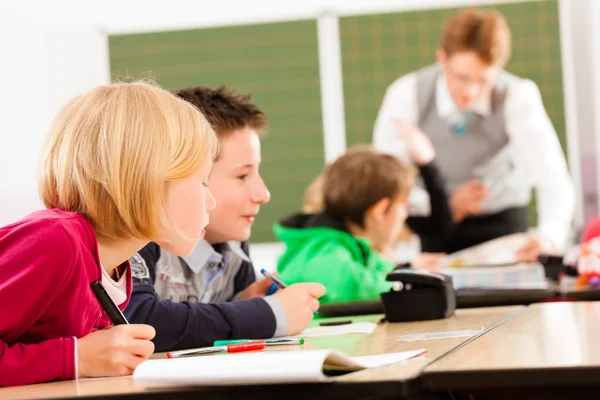Roles and Responsibilities of Structured School Management
Introduction
This article is intended to discuss and
describe the roles and responsibilities of school management and a structured school education system.
Education
· Education refers
to the methods of teaching and learning in schools or school-like environments.
· Education is the
transmission of knowledge, skills, and character traits.
· Education helps
you develop critical skills like decision-making, mental ability,
problem-solving, and logical thinking.
· Formal education
refers to the structured education system that runs from primary school to
university including institutions of specialized vocational, technical, and
professional education and training.
· In India, the
Formal Education system consists of five years of primary schooling, followed
by three years of middle school, and two years of high school. After the
completion of high school, students can pursue higher education at a college or
university.
Informal
Education
Informal Education refers to a lifelong
learning process in which a person acquires knowledge, skills, values, and attitude
from the educational influences and resources in his or her environment and daily experiences.
Educational
system
· An Educational
system refers to a model which unites/integrates institutional structures
(preschools, schools, colleges, and universities) to give education to students.
· The Indian
education system is divided into five categories: preschool education, primary
level education, secondary level education, senior secondary level education,
and graduate and above level education.
Educational
management
Educational management refers to the
administration of the educational system in which a group combines human and
material resources to supervise, plan, strategies, and implement structures to
execute an educational system.
School
management
· School management
is the process of planning, organizing, directing, and controlling the
activities of an institution utilizing human and material resources to
effectively and efficiently accomplish the function of teaching, extension work, and research to achieve the aims and goals of a school.
· School management
means running the school along with the desired educational policies. It takes into
account all aspects of the school (policies, material, human resources,
programs, activities, and pieces of equipment, and integrates them into a fruitful whole).
· The five basic
functions of school management are planning, organizing, coordinating,
commanding, and controlling.
· Some of the main
actors of school management are students, staff, teachers, students’ parents,
and managerial staff.
· The main role of
school management is to supervise the activities of the school for its smooth
functioning.
· School management
should work according to the specific directions given by the society or trust
or company regarding admission policy.
Early
childhood
· Early childhood
refers to the period from birth to age eight.
· Early childhood
comprises several life stages, marked by one of the remarkable brain development
stages for children, and represents a crucial window of opportunity for education.
· In early
childhood children become more self-sufficient, and independent, and develop
self-esteem.
School
A school is an educational institution
designed to provide learning spaces and learning environments for the teaching
of students under the direction of teachers.
· Schools should
believe in achieving the best for every child.
· Schools should
provide world-class opportunities inside and outside the classroom that allow
all students to succeed and thrive, both now and in the future.
· In the inclusive school
system, schools should achieve results in the right way. This means that all
students should have their academic, pastoral, and extra-curricular needs met
and their potential maximized.
· Schools are
educating the future leaders of our world.
· The school should
aim to foster the values that will generate young people ready to positively impact the world around them.
Early
year school
· The early years
(0 to 8) years are the most extraordinary period of growth and development in a
child’s lifetime.
· The foundations
of all learning are laid during these periods.
· The aim of early
childhood education (school) is to facilitate optimum development of the
child’s full potential and lay the foundation for all-round development and
lifelong learning.
EYFS
· EYFS stands for
the Early Years Foundation Stage.
· EYFS sets
standards for the learning, development, and care of your child from birth to
five years old.
Preschool
education
· Preschool
education is also known as pre-primary education.
· Preschool
education refers to education imparted to children in the 3-6 age group.
· Preschool
education is the first stage of organized education.
Playschool
·A playschool is
also known as a preschool, pre-primary school, crèche, or nursery school.
· Playschool refers
to a school where children younger than five years old go to play and learn.
· Playschool is an
educational establishment or learning space offering early childhood education
to children before they begin compulsory education at primary school.
· Playschool use
dramas, group activities, and literary and sensory art projects to help children
develop their early abilities and language.
Click the link below to see the Indian primary school education policy
Please click to navigate slides.
School Teacher
A school teacher is a person who gives
lessons in a school.
Roles and responsibilities of a school teacher
· A teacher should possess strong subject knowledge and pure enthusiasm for the subject that can be shared with the students.
· Teachers should
be experienced.
· A teacher must
have hands-on experience in teaching according to the CBSE curriculum/British curriculum/US curriculum.
· Teachers should
be committed to their work and role.
· Teachers should
be able to teach consistently inspirational lessons and have a track record of
delivering outstanding results.
· A teacher should
be of a highly collaborative nature and have strong communication skills.
· A teacher should
be committed to the well-being and pastoral care of all students within their
care.
· A teacher should
be innovative, creative, and of a positive mindset.
· A teacher should
be able to plan for the timely coverage of the syllabus.
· A teacher should
be able to plan, prepare and deliver lesson plans and instructional materials
to facilitate active learning.
· A teacher should
be able to maintain accurate and complete records of student progress and
development.
· A teacher should
be able to use appropriate guidelines and types of equipment for the conduct of
educational delivery.
· A teacher should
be able to respond to students' and mentors' inquiries.
· A teacher should
be competent to train the students for Olympiad and other competitive
examinations.
· A teacher should
be able to manage student behavior in the classroom by establishing and
enforcing rules and procedures.
· A teacher should
be able to work under the supervision of the principal.
Classroom management responsibilities of a good teacher
· A teacher should plan
and prepare classroom instructions.
· A teacher should
identify needed recourse and materials for classroom instructions.
· A teacher should be able to identify students who need support and extra help, works with them according to individual needs, and regularly reports to coordinate their progress.
· A teacher should
provide resources to meet the needs of individual students.
· To meet the needs of diverse students, teachers should use a variety of instructional strategies.
· A teacher should
be able to make a positive classroom environment that promotes learning.
· A teacher should
establish and maintain standards of student behavior needed for an orderly,
productive classroom and school.
· A teacher is responsible to design ways to keep a class of multiple intelligence actively involved at different levels.
· A teacher should
be able to motivate, encourage, and find interesting ways to keep the learning
spirit high throughout the year.
· A teacher should
be able to operate and care for instructional equipment and materials as
assigned by the school. This includes preparing the classroom for activity,
obtaining the required material and equipment, operating the equipment, and
the return of all materials and equipment to storage.
· A teacher should
be able to conduct and provide demonstrations to teach such skills as sports,
dance, song, games, storytelling, and handicrafts.
· A teacher should
be able to supervise students during non-instructional times, such as emergency
drills, assemblies, cafeteria, restrooms, field trips hallways, playground, and
bus loading activities.
· A teacher should
be able/ committed to assure the health and safety of students during movement
from one center to another by following established practices and procedures
and maintaining the learning environment in a safe, orderly, and clean manner.
Professional responsibilities of a good teacher
· A teacher should
behave politely and show respect to all students to help build self-esteem in
them.
· A teacher should
show a sense of fairness to students and avoid partiality in all matters at all
times.
· A teacher should
be able/ committed to perform a variety of clerical duties in support of classroom
activities, such as preparing, typing, copying, and filing instructional
materials. Grade student tests and assignments, recording of grades, attendance
reports, and maintaining student records and files as assigned.
· A teacher should
be responsible to inform parents regarding student progress, the instructional
program, and other school issues.
· A teacher should
be able/ committed to conducting student and parent orientation sessions in the
class during the first month of school.
· A teacher should participate
in teacher-parent conferences regarding students’ progress or problems.
· A teacher should
comply with ministry law, school policies, and procedures.
· A teacher should
be made responsible to collect, assess, and provide timely feedback for
assignments.
· A teacher should
participate in professional growth activities.
· A teacher should
be able/ committed to participate in in-house training programs.





No comments:
Post a Comment